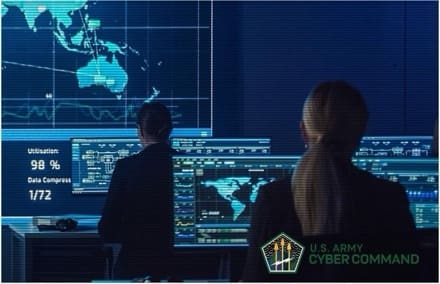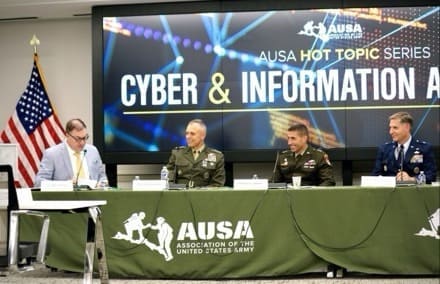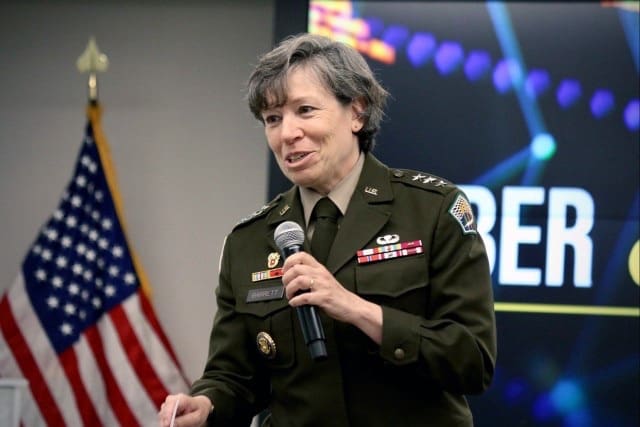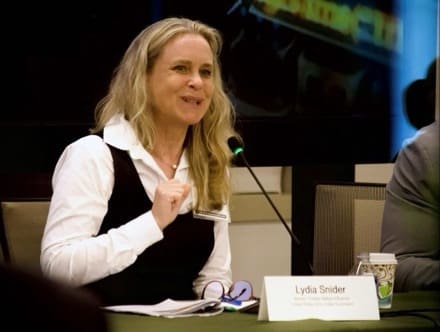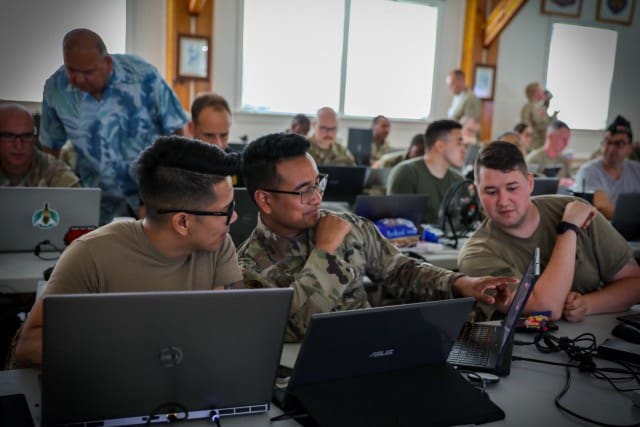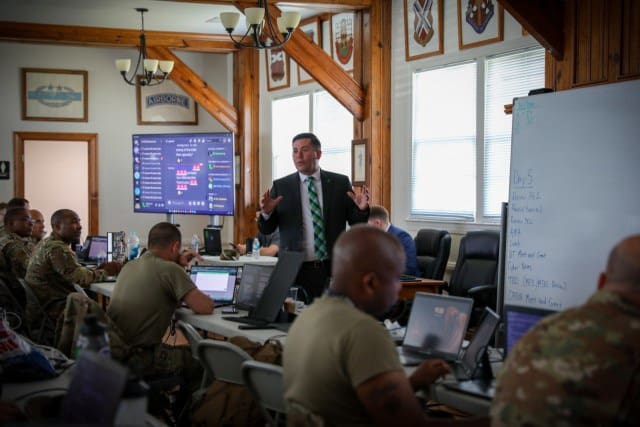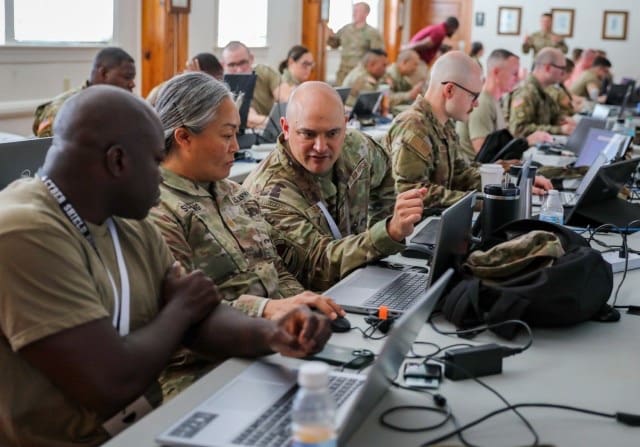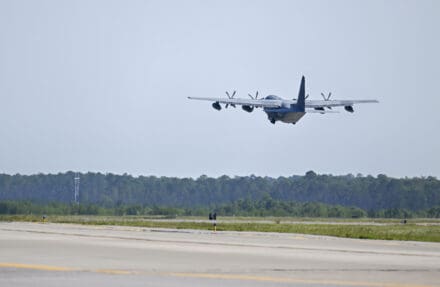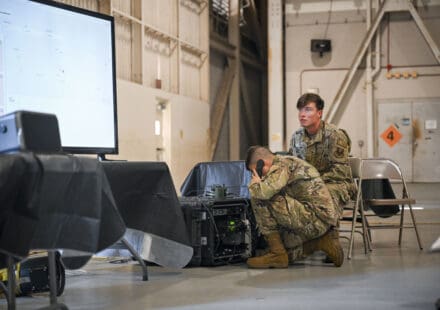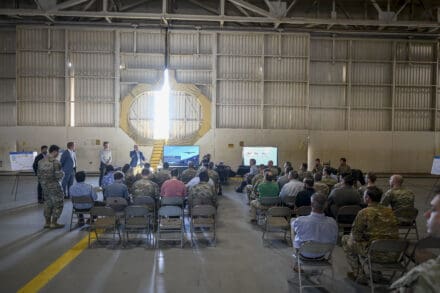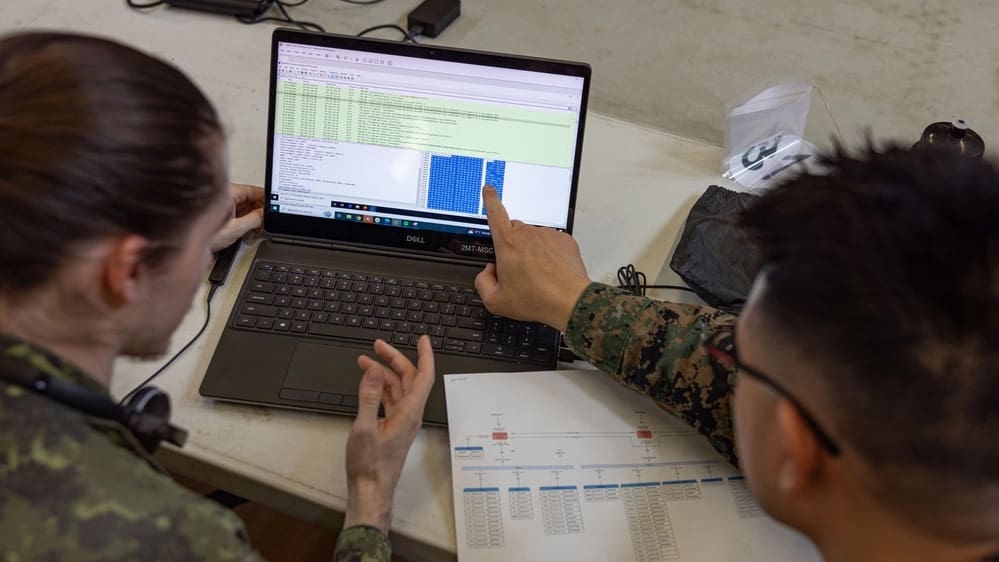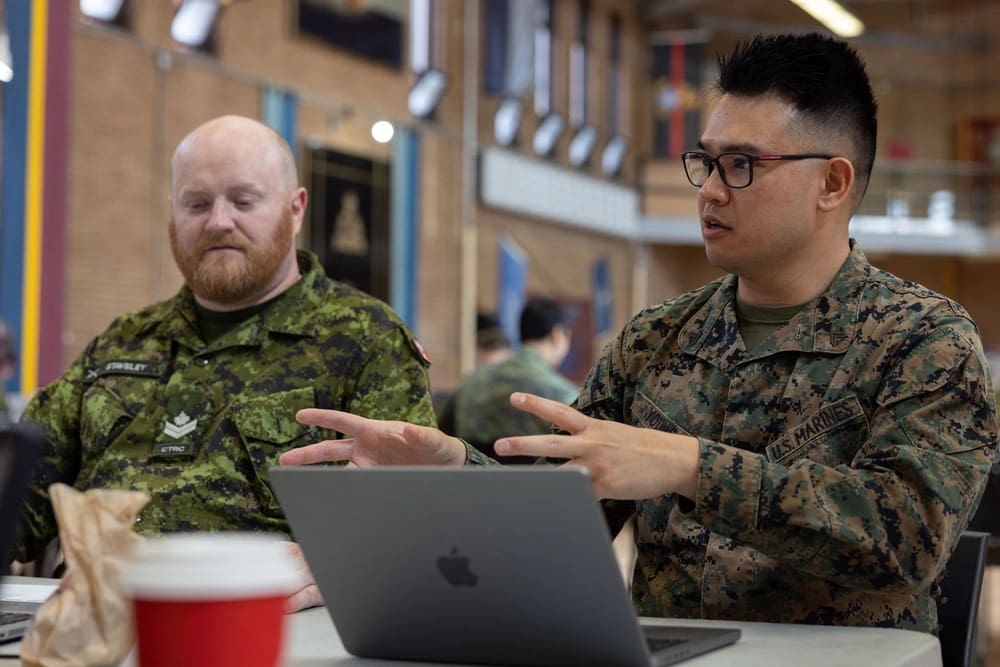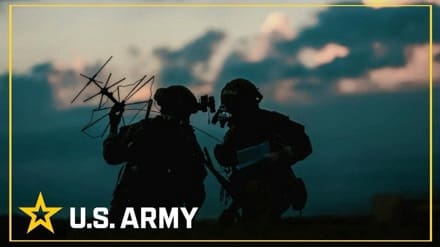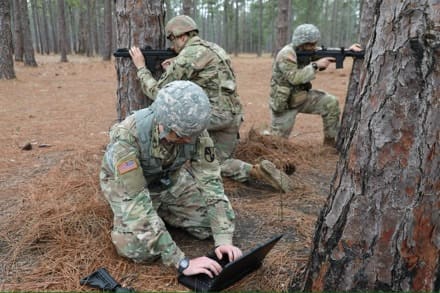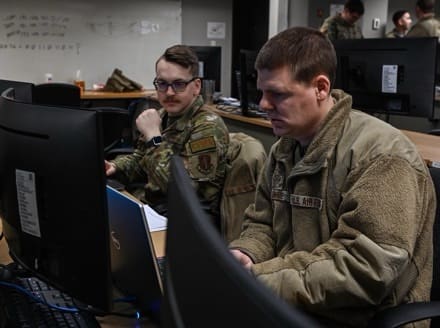ARLINGTON, Va. (AFNS) —
The Air Force is now accepting applications, from April 25 to May 31, for Airmen aspiring to become the inaugural cohort of warrant officers in the information technology and cyber career fields.
Plans to re-introduce warrant officers to the Air Force was announced by Secretary of the Air Force Frank Kendall at the Air and Space Forces Association’s 2024 Warfare Symposium in conjunction with the Department’s plan to Reoptimize for Great Power Competition.
“We need operational units with all the capabilities they need to deter and compete with our pacing challenges and ready to enter a conflict on short or no notice,” Kendall said. “In those units we need the right mix of skills necessary for high end combat and to ensure technological superiority, particularly in information technology and cyber.”
This announcement marks a significant milestone for the initiative and presents an opportunity for up to 60 selected candidates, who will play a crucial role in addressing the multifaceted challenges of today’s dynamic security landscape. This decision signifies a pivotal moment in Air Force history, representing a strategic shift towards bolstering technical proficiency and operational effectiveness.”
This announcement marks a significant milestone for the initiative and presents an opportunity for up to 60 selected candidates, who will play a crucial role in addressing the multifaceted challenges of today’s dynamic security landscape. This decision signifies a pivotal moment in Air Force history, representing a strategic shift towards bolstering technical proficiency and operational effectiveness.
“The reintroduction of the warrant officer career path reflects the Air Force’s commitment to expanding and retaining technical excellence, essential for maintaining a strategic advantage in an era defined by Great Power Competition,” said Air Force Chief of Staff Gen. David Allvin. “By investing in talent management programs that preserve proficiency and competence in our perishable and highly technical skills, the Air Force aims to ensure its readiness to stay ahead of rapidly advancing threats and safeguard national security interests effectively.”
The history and role of warrant officers
The Air Force dissolved its Warrant Officer Corps in 1958 following the creation of the senior master sergeant and chief master sergeant ranks, who took on warrant officer responsibilities. These SNCOs took on specific technical duties, but were never relieved of their institutional requirements.
The reintroduction of the Warrant Officer Corps career path in the Air Force aims to address critical operational needs, while maintaining highly perishable skills, and leverage the unique expertise and capabilities of warrant officers. They will serve as technical experts, functional leaders, advisors, professionals, and risk managers, contributing to the overall proficiency of their organizations.

Application Requirements
This first cohort of active duty, Air National Guard, and Air Force Reserve candidates must hold the rank of at least staff sergeant and have one year of active federal service. Notably, applicants must meet specific experience and proficiency requirements outlined for each warrant officer specialty, ensuring a highly skilled and capable cohort.
The Air Force created two new Air Force specialty codes for warrant officers, reflecting the critical role these officers will play in the realm of cyber and information technology. The first AFSC, 17W – Warfighter Communications & IT Systems Operations, designates individuals as subject matter experts and trusted advisors on the planning, deployment, employment, and securing of enterprise and warfighter communication systems.
These warrant officers will provide technical guidance to commanders and staff, ensuring the efficient operation and management of communication assets at all echelons. Additionally, they will play a pivotal role in mentoring and developing cyberspace personnel, contributing to the overall cybersecurity posture of the Air Force.
The second AFSC, 17Y – Cyber Effects & Warfare Operations, designates individuals as subject matter experts and trusted advisors on offensive and defensive cyber operations assets and personnel. These warrant officers will be responsible for orchestrating, managing, and integrating cyberspace technical capabilities, delivering critical technical recommendations across various military and inter-agency platforms. Their expertise will extend to integrating cyberspace capabilities into warfighting functions to enhance combat effectiveness and maneuvering strategically in the cyber domain.
Although Airmen in any AFSC can apply, they must meet specific functional technical experience to ensure these individuals possess the requisite skills and experience to excel in their duties, contributing significantly to the Air Force’s technical readiness and operational effectiveness in cyberspace operations.
For the Warfighting Communications & IT Systems Operations (17W) AFSC, applicants must possess a minimum of 24 months of documented operational experience with enterprise IT or warfighter communications systems in areas such as voice and data internetworking, local and wide area networks, including terrestrial, satellite, and aerial systems, as well as network planning. Additionally, all applicants much hold a minimum Department of Defense approved industry certification commensurate with the requirements for the Information Assurance Technical Level II certification or higher.
Similarly, candidates for the Cyber Effects & Warfare Operations (17Y) AFSC must hold senior level proficiency in one or more U.S. Cyber Command work roles as defined in the Commands Job Qualification System, or National Security Agency equivalent. Additionally, for those specifically interested in a Cyber Capability Developer work role, must be a certified U.S. Cyber Command Senior Cyberspace Capability Developer or a Computer Network Operations Development Program graduate or have three years of experience in system level programming, i.e. C, Assembly.
Members are encouraged to read the Personnel Service Delivery Memorandum in its entirety to ensure they qualify to apply.
After Applying
The selection board process, scheduled for June 24-28, will identify top candidates poised to assume critical roles as technical experts, functional leaders, and advisors within their specialized domains. Those selected for the first cohort will be notified in late July.
Candidates will undergo comprehensive training at the Warrant Officer Training School starting in the fall of 2024 or early 2025, which will be located at Maxwell Air Force Base, Alabama, and will focus on equipping them with the necessary skills to excel in their new roles.
Upon graduation from WOTS, candidates will be warrant officers and will be reassigned to operational units across the Air Force. Their assignments will align with operational requirements and member preferences to maximize their effectiveness in enhancing technical readiness and operational effectiveness.
“These are highly in-demand, and also extremely perishable, skills in today’s rapidly-evolving landscape,” said Chief Master Sgt. of the Air Force David A. Flosi. “As we navigate the complexities of Great Power Competition, our ability to adapt and innovate hinges on the expertise of our Airmen. Using our Airmen’s full potential is not just a strategic advantage; it’s a necessity for our Air Force’s readiness and effectiveness in the face of a challenging strategic environment.”
For additional information on the requirements of becoming a warrant officer, click here.
Courtesy of Secretary of the Air Force Public Affairs
